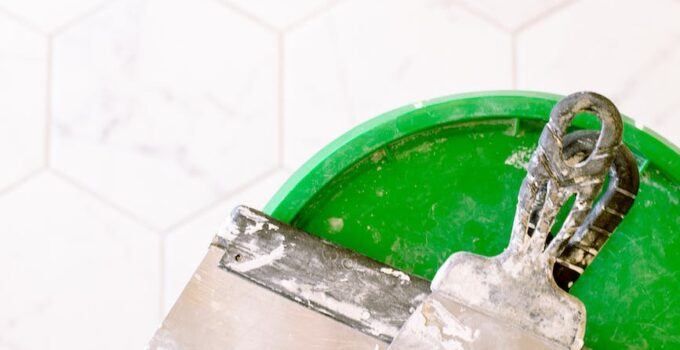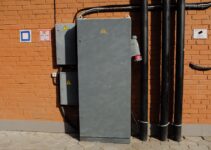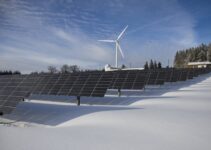Understanding the Basics of Inverter Generators
Inverter generators have become increasingly popular due to their portability and ability to provide stable and clean power. Unlike traditional generators, which run at a constant speed, inverter generators adjust their speed based on the power demand, resulting in quieter and more fuel-efficient operation.
These generators convert the AC power produced by the engine into DC power and then invert it back into clean AC power, making them suitable for sensitive electronics and appliances.
Safety Precautions to Consider Before Using an Inverter Generator Indoors
While inverter generators offer many advantages, it is important to understand the safety precautions before using them indoors. Here are a few key points to keep in mind:
- Read the manufacturer’s instructions: Before using an inverter generator indoors, carefully read the manufacturer’s instructions and safety guidelines. These instructions provide specific information regarding the safe operation and usage of the generator.
- Adequate ventilation: Inverter generators produce exhaust gases, including carbon monoxide, which can be harmful if inhaled in high concentrations. Always ensure proper ventilation in the indoor space where the generator is being used. Open windows and doors, or use fans to improve airflow.
- Carbon monoxide detectors: Install carbon monoxide detectors in the vicinity of the indoor space where the generator is being used. These detectors will alert you if the carbon monoxide levels reach dangerous levels.
- Keep a safe distance: Place the inverter generator at a safe distance from any living or occupied areas to minimize the risk of carbon monoxide exposure. Avoid using the generator in enclosed spaces, such as basements, garages, or inside the house.
- Regular maintenance: Ensure regular maintenance of the inverter generator, including cleaning the air filters and checking for any leaks or damage. Regular servicing will help maintain the generator’s performance and minimize the risk of accidents.
Discover the Benefits of Using Inverter Generators Indoors
Inverter generators offer several benefits when used indoors:
- Quiet operation: Inverter generators are designed to run quietly, making them suitable for indoor use. This feature is especially important if you plan to use the generator in a residential area or during quiet hours.
- Clean power output: Inverter generators produce clean and stable power, making them safe for sensitive electronics and appliances. You can confidently power your laptops, smartphones, refrigerators, and other electronic devices without worrying about power surges or fluctuations.
- Fuel efficiency: Inverter generators adjust their speed based on the power demand, resulting in improved fuel efficiency. This means you can enjoy longer run times without the need for frequent refuelling.
- Portability: Most inverter generators are compact and lightweight, making them easy to transport and store. This portability allows you to take the generator indoors during power outages or for other indoor activities.
Common Misconceptions About Inverter Generators and Indoor Usage
There are some common misconceptions surrounding the use of inverter generators indoors. Let’s debunk a few of them:
- Inverter generators cannot be used indoors: This is not entirely true. Inverter generators can be used indoors, but it is crucial to follow the manufacturer’s instructions and safety precautions to ensure safe operation.
- Inverter generators produce harmful emissions: While it is true that inverter generators produce exhaust gases, including carbon monoxide, they can be used safely indoors if proper ventilation is ensured.
- Inverter generators are loud: Inverter generators are designed to operate quietly, especially at lower loads. The noise level is significantly lower compared to traditional generators, making them suitable for indoor use.
- Inverter generators are expensive: While inverter generators may have a higher upfront cost compared to traditional generators, their efficiency and clean power output can result in long-term cost savings.
Tips for Properly Ventilating an Indoor Space When Using an Inverter Generator
Proper ventilation is crucial when using an inverter generator indoors. Here are some tips to ensure adequate airflow:
- Open windows and doors: Keep windows and doors open to allow fresh air to enter the indoor space. This will help in dissipating any exhaust gases produced by the generator.
- Use fans or exhaust systems: Place fans strategically to improve air circulation within the indoor space. You can also consider using exhaust systems or ventilation fans to remove any fumes or gases.
- Maintain a safe distance: Position the inverter generator at a safe distance from any openings or vents of the indoor space. This will prevent exhaust gases from entering the building.
- Consider outdoor usage: If possible, it is always recommended to use the inverter generator outdoors. This eliminates the need for extensive ventilation and reduces the risk of carbon monoxide exposure indoors.
Explore Alternative Power Sources for Indoor Use
In addition to inverter generators, there are other alternative power sources that can be used indoors:
- Battery backup systems: Battery backup systems provide a reliable source of power during outages. These systems store electricity in batteries, which can be used to power essential appliances and devices.
- Solar power systems: Solar power systems harness energy from the sun and convert it into electricity. This renewable energy source can be used to power indoor spaces, reducing reliance on traditional generators.
- Wind turbines: Wind turbines generate electricity by harnessing the power of the wind. While primarily used for large-scale applications, smaller wind turbines can be installed for residential or indoor use.
Frequently Asked Questions about Can Inverter Generators Be Used Indoors?
Q: Can inverter generators be used indoors without any ventilation?
A: No, it is not safe to use inverter generators indoors without proper ventilation. Inadequate ventilation can lead to a buildup of exhaust gases, including carbon monoxide, which can be harmful or even fatal if inhaled in high concentrations.
Q: How far should the inverter generator be placed from the indoor space?
A: It is recommended to place the inverter generator at least 20 feet away from any living or occupied areas. This distance helps in minimizing the risk of carbon monoxide exposure and ensures proper ventilation.
Q: Can I use an inverter generator indoors during a power outage?
A: Yes, inverter generators can be used indoors during a power outage, but it is essential to follow the safety precautions and ensure proper ventilation. Using the generator in a well-ventilated area will help minimize the risk of carbon monoxide buildup.
Q: Are inverter generators suitable for powering sensitive electronic devices indoors?
A: Yes, inverter generators are specifically designed to provide clean and stable power, making them safe for sensitive electronics. You can confidently power your laptops, smartphones, televisions, and other electronic devices without the risk of power surges or fluctuations.
Expert Advice
When it comes to using inverter generators indoors, it is important to prioritize safety. Always read and follow the manufacturer’s instructions and safety guidelines.
Adequate ventilation is crucial to prevent the buildup of exhaust gases. Install carbon monoxide detectors to ensure early detection of any harmful emissions. Regular maintenance of the generator is also essential to ensure safe and efficient operation.
Remember, the safety of yourself and others should always be the top priority when using any type of generator indoors. By understanding the basics, following safety precautions, and exploring alternative power sources, you can make informed decisions regarding the use of inverter generators indoors.






